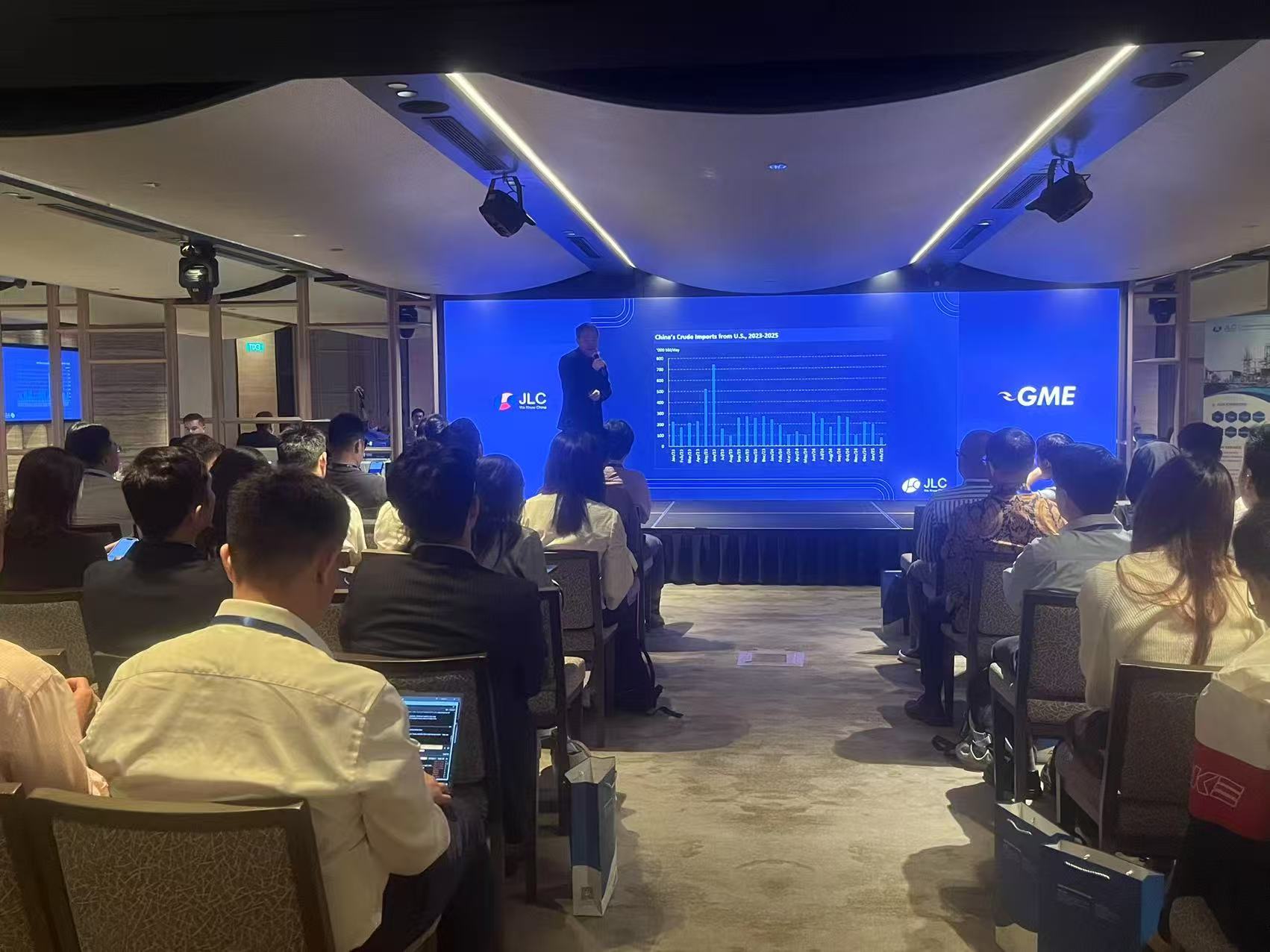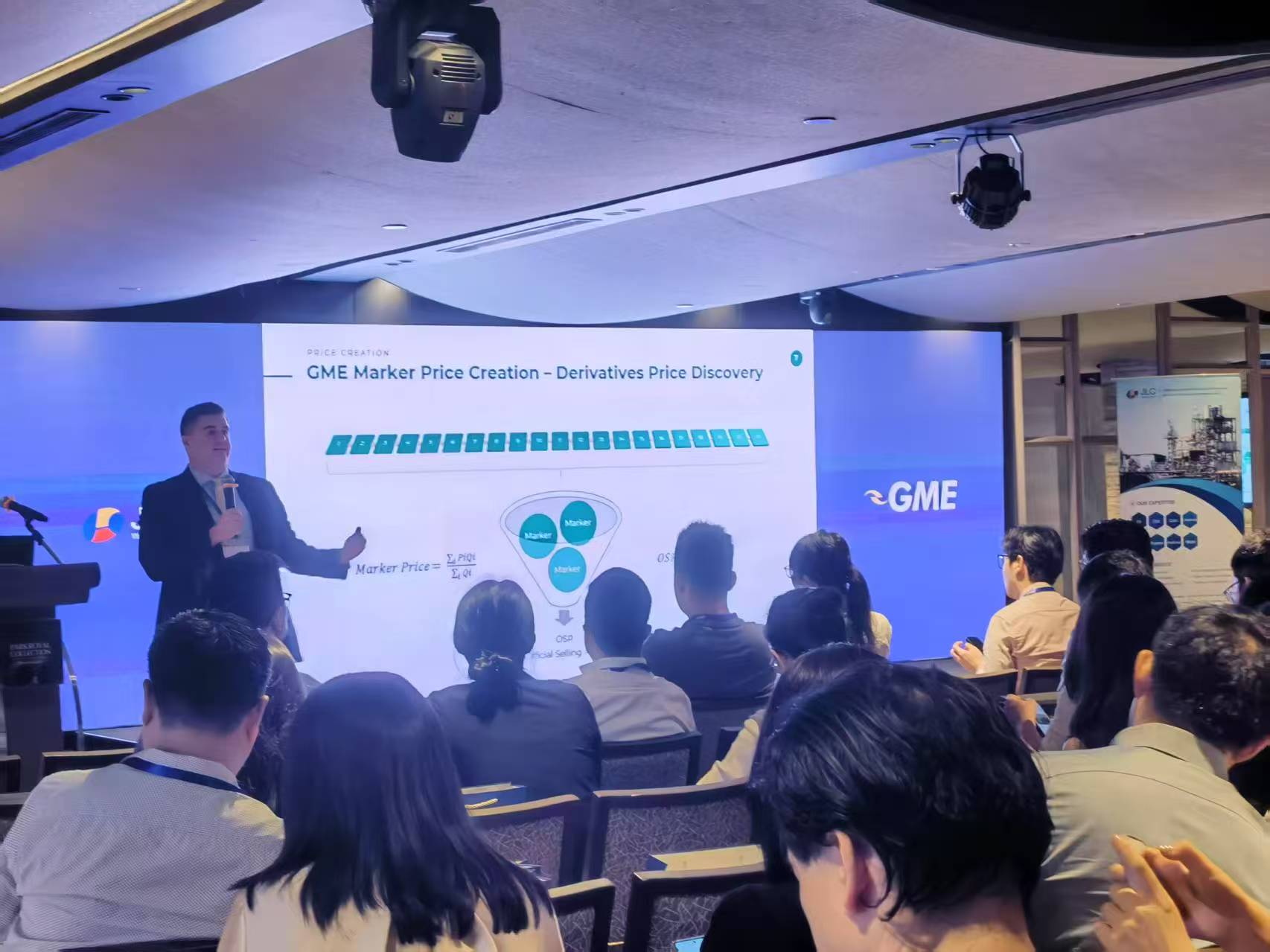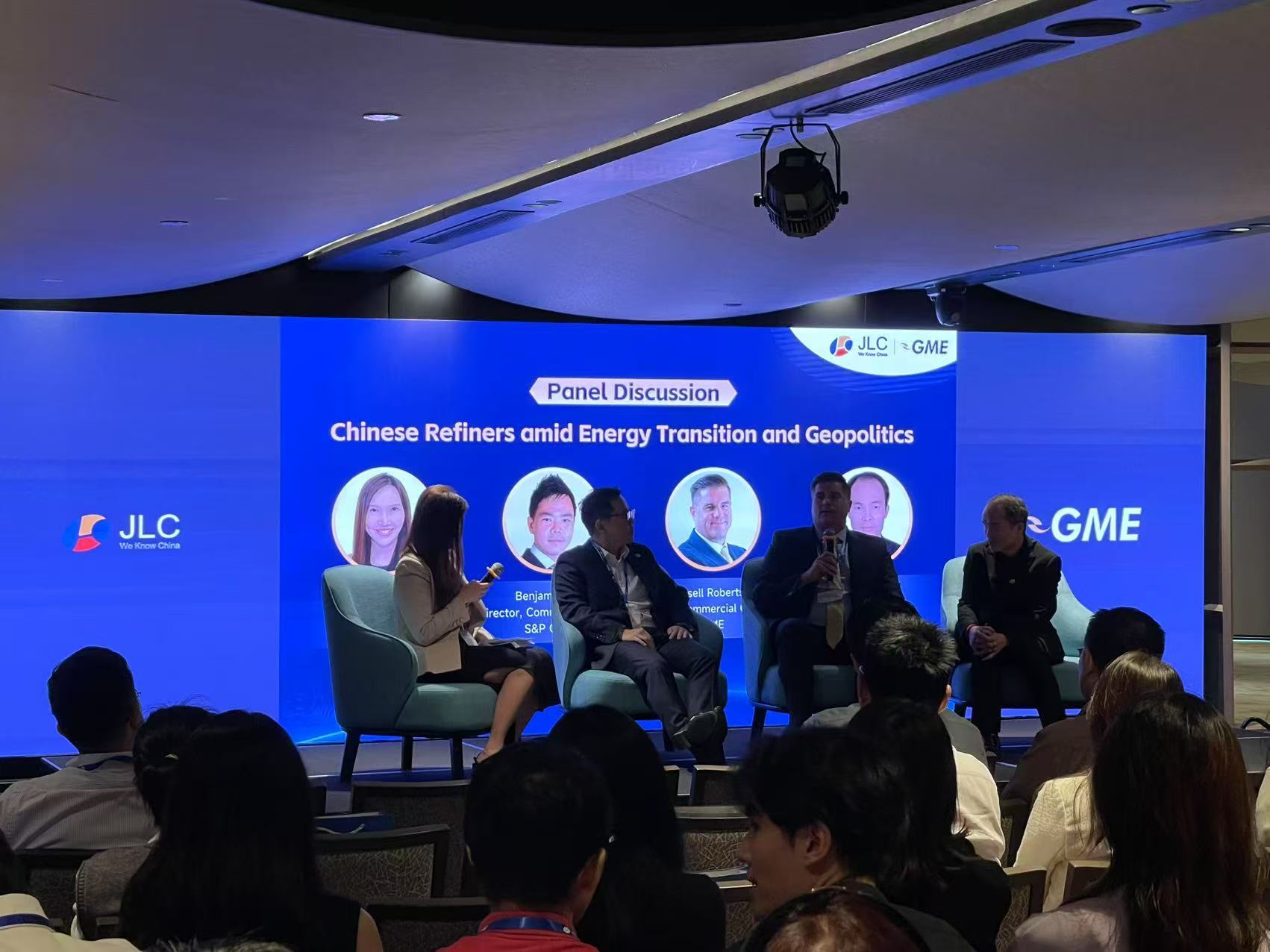Guangzhou (JLC), April 11, 2025--As the trade war between the United States (U.S.) and China keeps escalating, more attention has been drawn to the Chinese market. What does its energy market face?
For crude oil import, the impact will not be significant over the short run, as China can easily boost imports from other suppliers and the U.S. is not a large supplier to China, Victor Yang, a senior analyst from JLC, said at an oil seminar jointly held by GME and JLC in Singapore on April 9, “In 2024, China imported about 195kbd of crude from the U.S., which accounted for only 1.78% of China’s total imports in the year.”

Meanwhile, it is still too early to tell how hard the trade war will hit China’s exports and its economy, which can eventually dampen demand for oil.
Some other energy will take a hit more directly from additional U.S. tariffs, such as ethane and LPG, Xie Yu, Chief Editor of JLC International, said at the seminar. “Among China’s propane imports in 2024, about 59% was from the U.S., and Chinese buyers will need to boost imports from other suppliers when cargoes from the U.S. become too expensive.”

Before alternative supply is secured, some Chinese companies already started to cut the operating rate at their PDH units late this week, market sources said.
Meanwhile, more naphtha will be consumed for cracking to make up for the decline in propane supply, Xie Yu said, “Domestic production will grow in 2025, and China's imports also tend to rise. In May-June, the arrivals of imported naphtha may grow about 300,000 mt a month.”
For ethane, the impact will be more significant, as China relies heavily on the U.S. for its imports, Xie Yu said, “In 2024, China imported about 5.56 million mt of ethane, with 99% from the U.S., and we do not see any alternative suppliers yet.”
Also at the seminar, Russell Robertson, Chief Commercial Official from Gulf Mercantile Exchange (GME), gave an introduction of the development of GME and the pricing and trade of crude oil, before sharing his insights into the latest developments of the crude oil market.

A panel discussion on tariffs and the challenges posed to Chinese private refiners was also held at the seminar, joined by Benjamin Tang, Director of Commodities at Sea from S&P Global, Russel and Victor.

The trade war has been escalating this month. On April 11, China announced that it will impose an additional 125% tariffs on all the goods imported from the U.S., effective from April 12, up from an additional 84% that took effect on April 10, in response to the U.S.’ hikes in its tariffs against China. China added that it will not respond (with more tariffs) if the U.S. continues to hike its tariffs, as U.S. import into China is no longer viable under current tariffs.

